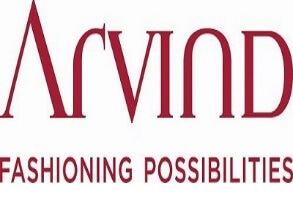Arvind CompanyThe flagship company of the Lalbhai Group, Arvind Limited (previously Arvind Mills), is a textile manufacturer. It has offices in Naroda, Ahmedabad, Gujarat, and Santej, India (near Kalol). Cotton shirts, denim, knits, and bottom weight (khaki) fabrics are all manufactured by the company. When it launched the Advanced Materials Division in 2011, it made its first foray into technical textiles. It is the largest denim producer in India. 
Arvind reached 100 million meters of denim per year in 1991, making it the world's fourth-largest denim producer. By 1992, the company had increased denim textile production by 23,000 tonnes per day by modernizing the Ankur Textiles plant in Khatraj. 1997: The Newport brand's marketing and distribution network is strengthened by the relaunched Flying Machine and Ruggers brands. For the first time in India, Arvind Mills establishes an anti-piracy squad to combat widespread imitation of their Ruf & Tuf and Newport jeans brands. Ruf & Tuf jeans are manufactured and distributed by Arvind Mills through a franchise arrangement. Arvind Fashions expands its manufacturing capacity in Bangalore to create Lee jeans. Arvind Mills became the world's third-largest denim maker in 1998. Arvind Mills' net profit increased by 280 percent in the fourth quarter of 2003. CRISIL has given Arvind Mills Ltd a "P1+" rating, indicating that their commercial paper has a very strong grade. The number of stitching machines is increased by seven. 2005: Arvind Mills reports profit growth of more than 80% for the fourth quarter. ICICI Ventures is selling its whole shareholding in Arvind Brands to Arvind Mills. They began producing Jeans Pants in Bangalore in March, with an established capacity of 4 million pieces per year. 2006: A new denim line aimed towards Super Premium brands from the United States, Europe, Japan, and Korea was launched. As a result of the positive reception to this collection, new locations for the Denim division were launched. September 2010: Nitol Group invests $60 million in a joint venture to build a 30 million meter denim manufacturing factory in Bangladesh. Nitol Group will own a 20% stake in the joint venture. Arvind begins construction on its first significant real estate project. Arvind grows to become one of India's leading fire-resistant cloth manufacturers. 2015: Invista, the owner of the Lycra fiber brand, established a joint venture in India to produce stretch denim fabric. Khadi Denim is the company's new denim fabric. Launches wearable denim technologies and smart denim jackets in collaboration with the world's largest internet company and most well-known denim brand. In collaboration with Arrow, launches a 4-in-1 smart shirt. 2016: Arvind Fashion Brands partners with cricket legend Sachin Tendulkar to establish True Blue, a menswear label that symbolizes the worldwide Indian ethos. In October, the company announced plans to raise roughly Rs. Seven hundred forty crores by diluting a 10% share in its brand business unit, valuing the company at Rs. 8,000 crore will be taken up by Multiples, a private equity firm founded by Renuka Ramnath. GAP joins together with Arvind to sell clothing on NNNow.com. Financial restructuringEven though other cotton textiles gradually replaced denim demand in the mid-1990s, the business embarked on a significant expansion of its denim output. Loans from both Indian and international financial organizations were used to fund the growth plan. The company found it difficult to repay the debts when demand for denim slowed, resulting in a higher interest load on the loans. Due to its debt burden, the corporation ran into financial difficulties in the late 1990s, resulting in considerable losses. In February 2001, the corporation devised a debt-restructuring strategy for the long-term loans it had taken on. Jayesh Shah, CFO, was in charge of the restructuring, while a JP Morgan Hong Kong team led by Ahmad Ayaz provided advice. This complicated financial restructuring process, which involved multiple local and international lenders, is regarded as the gold standard and a case study in India. Arvind Ltd. separated its branded apparel and engineering businesses in 2018 to improve focus and create value for its stockholders. In October 2018, it received approval for demerger from the NCLT Ahmedabad bench. The branded clothes division, Arvind Fashions, will expand its existing brand portfolio and increase its profitability. Anveshan Heavy Engineering, formerly known as Anup Engineering, has set aside 80 crores in capital expenditures to increase its current fabrication capacity of 15,000 tonnes per year by introducing a product mix. 40 crore of the anticipated investment has already been made.
Next TopicAsus Company
|
 For Videos Join Our Youtube Channel: Join Now
For Videos Join Our Youtube Channel: Join Now
Feedback
- Send your Feedback to [email protected]
Help Others, Please Share










